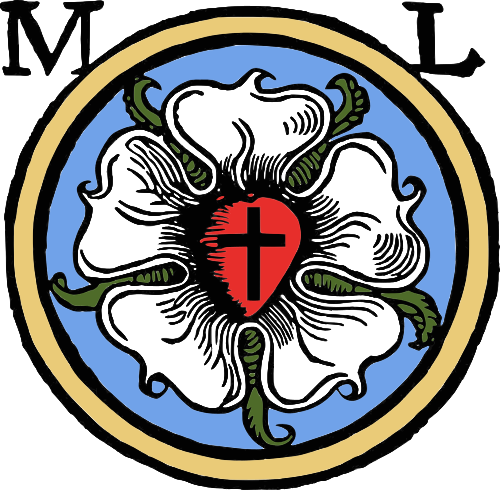Sermon for Easter 6B, May 5, 2024
A friend once asked me
how and when I got into cigars.
When I was in college,
my best friend and roommate
was a pack-a-day smoker.
My dad was the same.
I worked in a restaurant
that opened its doors at 11pm
to cater to the after-the-club crowd,
most of whom were smokers.
So much so,
that by 5am,
when the restaurant closed,
smoke had filled the room
from the 20ft ceiling
to about my mid-sternum.
I would sit down at some point in the evening
to role silverware
or just to rest my feet,
and when I stood up,
I would realize I was walking in a cloud of smoke.
If you can’t beat’em,
join’em.
So, I began to have the occasional cigar.
Not the Swisher Sweets
or some other gas station refuse,
but premium,
hand-rolled,
imported cigars
from Honduras,
Nicaragua,
and the Dominican Republic.
I even had a few Cubans
on my honeymoon in the Bahamas,
but don’t tell the Treasury Department.
It’s not something I do every day,
but about once a week,
I will have a good cigar,
and listen to the birds sing
the wind shuffle through the trees,
and find a sacred moment to just be still
and reconnect with myself
and with God.
This friend who asked me about cigars
told me about their similar love for craft beers.
It’s not something he can afford all the time,
but another friend of his
will leave him one in the church fridge
from time to time
only wanting to know what he thought of it
in return.
Most often,
my friend will share a craft beer
with his two adult sons,
who now live and go to school elsewhere,
and enjoy spending time with their dad when they can.
Once,
one of his boys
brought home a beer that cost $35 per bottle.
My friend was dumfounded by the price tag,
and could hardly bring himself to open the bottle.
But this was a gift from his son,
and not something my friend
would have ever bought for himself,
so he opened it,
savored it,
and was delighted to find
it was the best beer he’d ever had.
And it was made all the better
by sharing the experience with his son.
This story reminded me
of all those stories in the Old Testament
where the saints of old
would find a meeting place with God
in a wilderness,
in the desert,
on a mountain top,
and they would pour out costly oil
or water,
also a precious commodity in the desert,
to anoint that place,
make a pile of rocks,
and give the place a name in Hebrew
that meant something like
“God met me here”
or
“God provides”
or
“God is my deliverer.”
These folks,
flawed as they were,
are known to us as saints
precisely because of their ability
to look at a pile of rocks,
a patch of dirt,
at craggy hilltop
and recognize the presence of their Creator,
hidden in, under, and with
the common stuff of earth.
Or like the woman
in the house of Simon the leper
who broke open an alabaster jar
filled with nard,
a very costly oil,
and began to anoint Jesus’ head
just days before his death.
This woman recognized her God
in the spindly, exhausted, dusty body of Jesus.
In our first reading,
Peter has now joined the ranks
of these seers of the Divine.
Earlier in the same chapter as our reading for today,
Peter has had a vision,
of all sorts of unclean animals
lowered from Heaven in a sheet.
A voice tells him to
“Rise, kill, and eat.”
But Peter is an observant Jew,
and even a voice from heaven
wasn’t going to convince him to violate the law of God.
It took ol’ hard-headed Peter
having the same vision three times
and the voice telling him,
“What God has made clean,
you must not call profane.”
to stop arguing with a voice from heaven.
And while he is still scratching his head,
he gets an invitation to come and preach the gospel
to a Roman centurion, Cornelius
and his family.
At the Spirit’s urging,
Peter goes,
preaches the gospel,
and Cornelius and all his household
were baptized.
Then in our reading,
Peter has preached to other Gentiles in the region,
and is dumfounded again
to find that these Gentiles already have the Holy Spirit,
even without being baptized.
So,
Peter baptizes them too.
Peter,
like the woman with the alabaster jar of nard,
like Abraham spared from sacrificing Isaac,
like Jacob wrestling with the angel of the Lord,
Peter has found God
in an unexpected place.
And God,
like the woman,
like Abraham,
like Jacob,
had poured out a sacrifice.
God had poured out God’s very self,
and Peter had learned
to see through the common stuff of earth
to the God beneath
the God within
the God born through
what Peter had always thought profane.
And Peter’s response
was to reply in kind.
Peter’s response
was to pour out the gift of Holy Baptism,
the water and the Word,
to call sacred
what God had already sanctified.
God had already included
what Peter didn’t know
he had been given the authority to include.
God had moved the boarder,
expanded the circle,
and Peter was just catching up.
And God is still moving the borders.
Just this week,
The United Methodist Church
heard that same Spirit
that called to Peter,
call to them to embrace the LGBTQIA community
and they heeded the call.
The assembly voted overwhelmingly
to remove from their book of discipline
the language that forbade same-sex marriage
and LGBTQIA clergy.
When the church examined
the life and faith of Queer Christians,
they, like Peter among the Gentiles,
discovered that God had already gone beyond them,
had already included these faithful disciples
and had already poured out the Holy Spirit.
All that was left for the Church to do,
was to add the signs and symbols of God’s blessing
and rejoice in the expansion of God’s reign.
This command to love one another,
is the call to find these sacred meeting places
in the faces of our neighbors.
God is already there,
removing all the barriers that we have created
to keep us apart.
And what we are often called to sacrifice
is the barrier of our own pride.
Like my friend with the $35 beer.
His son already knew
that this time with his dad was sacred,
a holy friendship,
a time and a place
not promised forever,
but a fleeting moment to be savored,
enjoyed,
and marked with the sacrifice of something precious.
His son already knew,
and it took my friend a moment to catch up,
to recognize it too,
and to share in the sacrifice.
Beloved,
you are this sacred too.
You are the stuff of earth
into which God has poured God’s very self.
You are the meeting place
of the sacred and the profane,
a saint and a sinner,
the dust of earth and the breath of God.
And it is on this meeting place
that the Church has poured out water and the word,
and given you a name.
It is in you,
in your very body,
that the Church is called to find
and to remind you of
these holy moments
of God meeting God
until we all have seen the face of Christ,
in the mirror
and in our neighbor,
and knelt to kiss this holy ground.
Christ now invites us to this meal,
and raises a cup
more costly than we can imagine
and yet,
more freely given than we could dare to hope
to share with us this sacred moment
that we might know like the saints of old
“God met us here.”
Amen.









